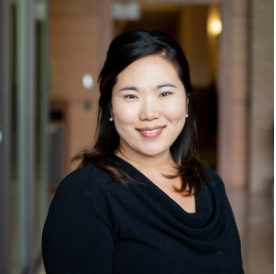OVCRGE Grant to Investigate Asian American Pain
June 6, 2023 | By WCER Communications

Shinye Kim
WCER researcher Shinye Kim, an assistant professor of counseling psychology in the School of Education, is using a $249,973 campus grant to create a “pain expression library” and digital assessment tool to help fill a void of clinical knowledge about how Asian Americans describe and rate their experiences of chronic pain.
The two-year project is designed to improve diagnostic accuracy and treatment efficacy for multiple pain conditions, including informing whether to prescribe opioids and at what level, Kim says.
“Asian American immigrants have been historically excluded in pain science, despite being the fastest growing minority group in the U.S.,” Kim says. “Thus, there is a critical need to identify Asian American cultural and linguistic pain communication patterns and expressions so that providers have complete information for clinical decisions.”
Using methods including in-depth interviews with Asian immigrants to understand their language use relating to pain, researchers will build a cultural and language-specific pain dictionary and expression library database, among other planned advances.
The planned web-based or mobile app will include Chinese, Vietnamese, Korean, and Hmong pain terms, idioms, and linguistic patterns. according to the project description by Kim and Co-Principal Investigator Maichou Lor, an assistant professor of nursing.
Researchers also intend to write a health policy brief addressing critical cultural-linguistic implications of pain care disparities in the Asian population.
The pain project is one of seven chosen from 29 proposals to receive funding this year from the Office of the Vice Chancellor for Research and Graduate Education through its Increasing Social and Economic Inclusion initiative. The initiative is supported by the Wisconsin Alumni Research Foundation using income generated by patents filed by UW–Madison faculty and staff.
Some of the other funded projects include one to identify discriminatory housing market practices and another to manage health and reduce stroke risk for a tribal community.


